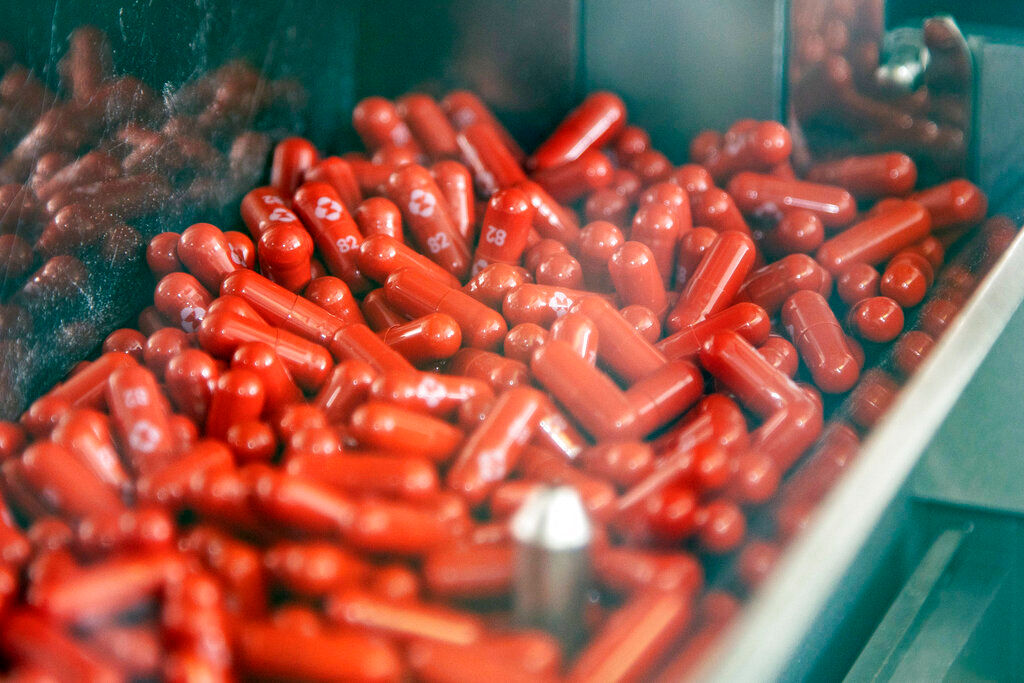Merck & Co. shares on Friday posted their biggest gain in 12 years after its experimental pill slashed the risk of getting seriously ill or dying from the novel COVID-19 in a study, findings that could eventually yield a simple way to treat many virus patients before they ever reach the hospital.
According to Bloomberg, the drug, Molnupiravir, reduced the risk of hospitalisation or death by as many as 50 percent in an interim analysis of a late-stage clinical trial, Merck and partner Ridgeback Biotherapeutics LP said in a statement on Friday.
The report further said that the study results were so encouraging that Merck and closely held Ridgeback, in consultation with independent trial monitors and the US Food and Drug Administration, elected to stop enrolling patients and begin the process of gaining regulatory clearance.
“We couldn’t be more thrilled with the results,” Merck Chief Executive Officer Rob Davis said in an interview, Bloomberg reported. “You don’t have to go to the hospital, you don’t have to go to a center to have it infused. It’s a pill you can take at home,” he added.
Also read: Merck says oral drug Molnupiravir cuts COVID deaths and hospitalisations by half
In New York trading, Merck rose as much as 12 percent, its biggest intraday gain since March 13, 2009.
The companies now plan to seek an emergency-use authorization from the FDA as quickly as possible, Davis said.
If the medication reaches the market, it would mark an important milestone in the ongoing pandemic. While there are several drugs available to treat the deadly virus, they can be either cumbersome to give to patients, or intended for use in only the most seriously ill.
So far, no easy-to-use option has been available for people who are infected but not yet sick enough to need hospital care. That has left many caregivers with a difficult choice: send infected people home to try to ride out their illness and risk getting worse, or admit more patients to what are often already-crowded intensive-care units.
Also read: Retired policer officer confesses to being infamous serial killer ‘La Grele’ in suicide note
The companies said 7.3% of patients who received Molnupiravir were either hospitalized or died through 29 days, compared with 14.1% who received a placebo. Through 29 days, none of the participants taking Molnupiravir died, compared with eight deaths in the placebo group.
The trial had planned to enroll 1,550 participants, and around 90% had already signed up. Patients who were taking a placebo will have the opportunity to start on Molnupiravir, Davis said.
Merck plans to submit the data to other regulators worldwide. It said in the statement that it expects to produce 10 million courses of treatment by year-end, with more expected in 2022.







